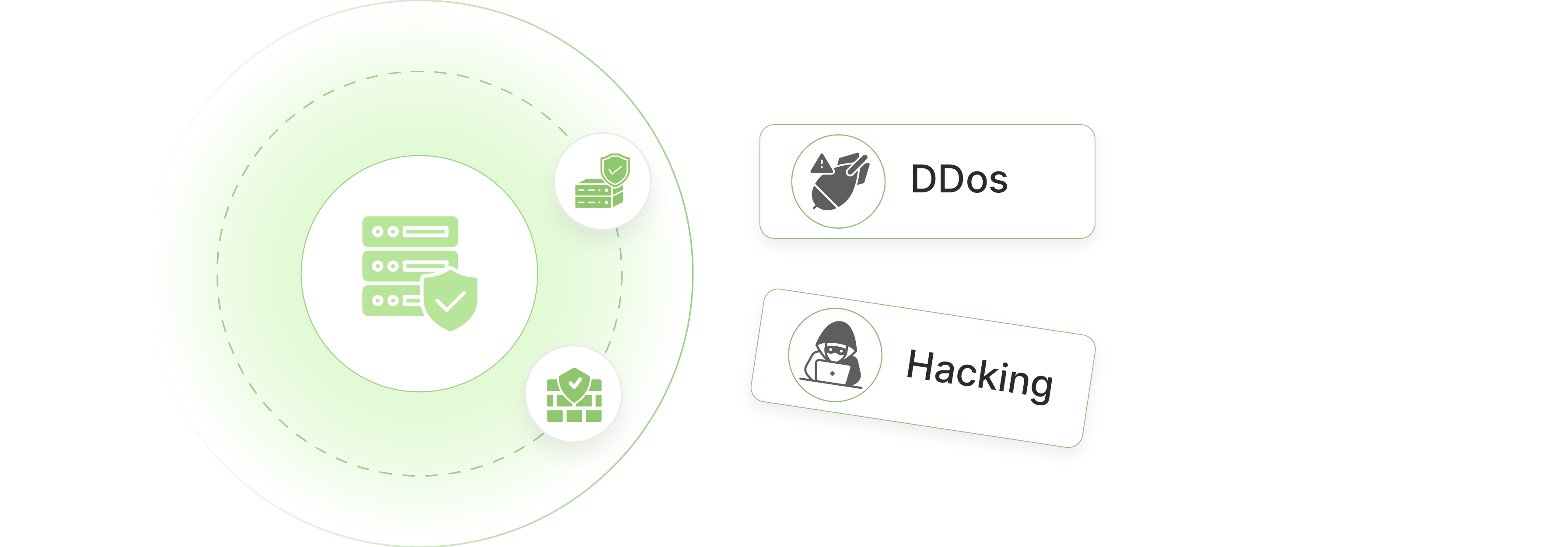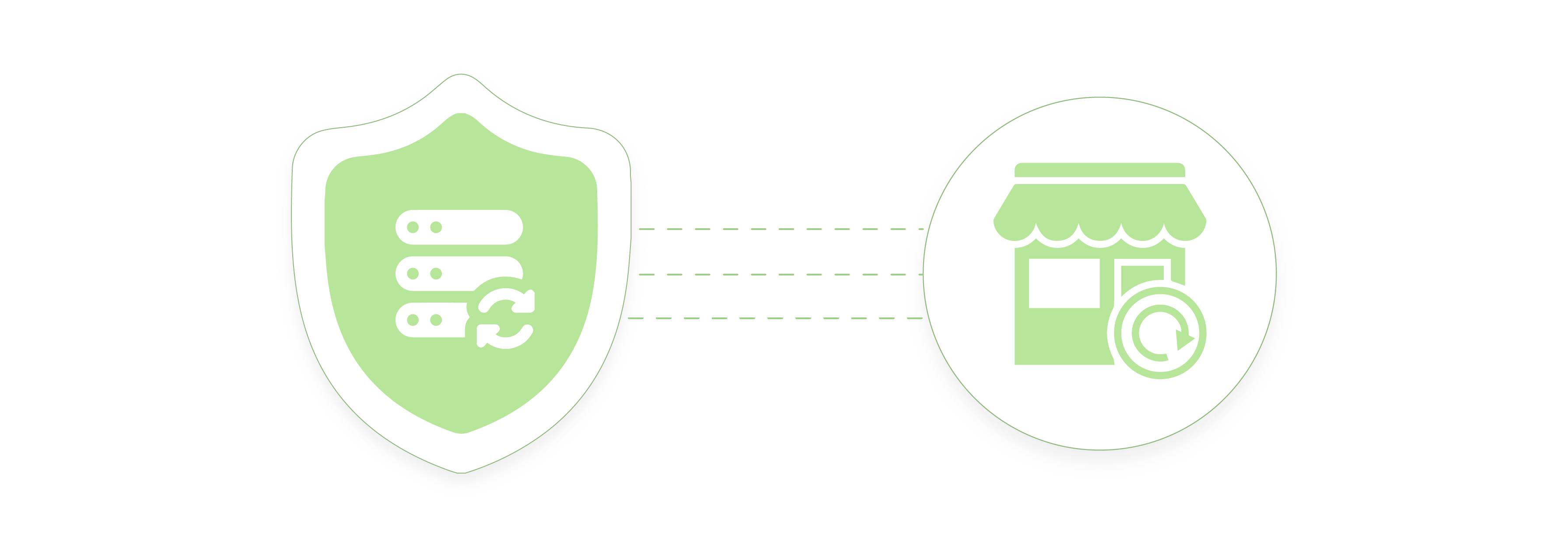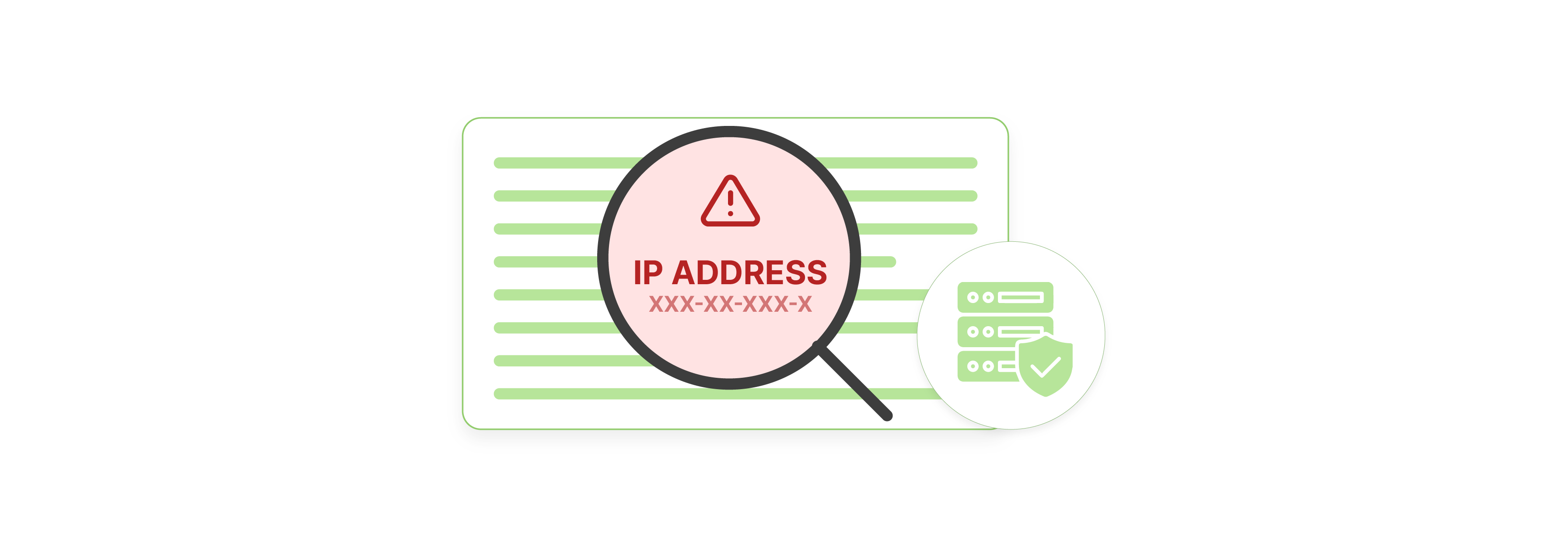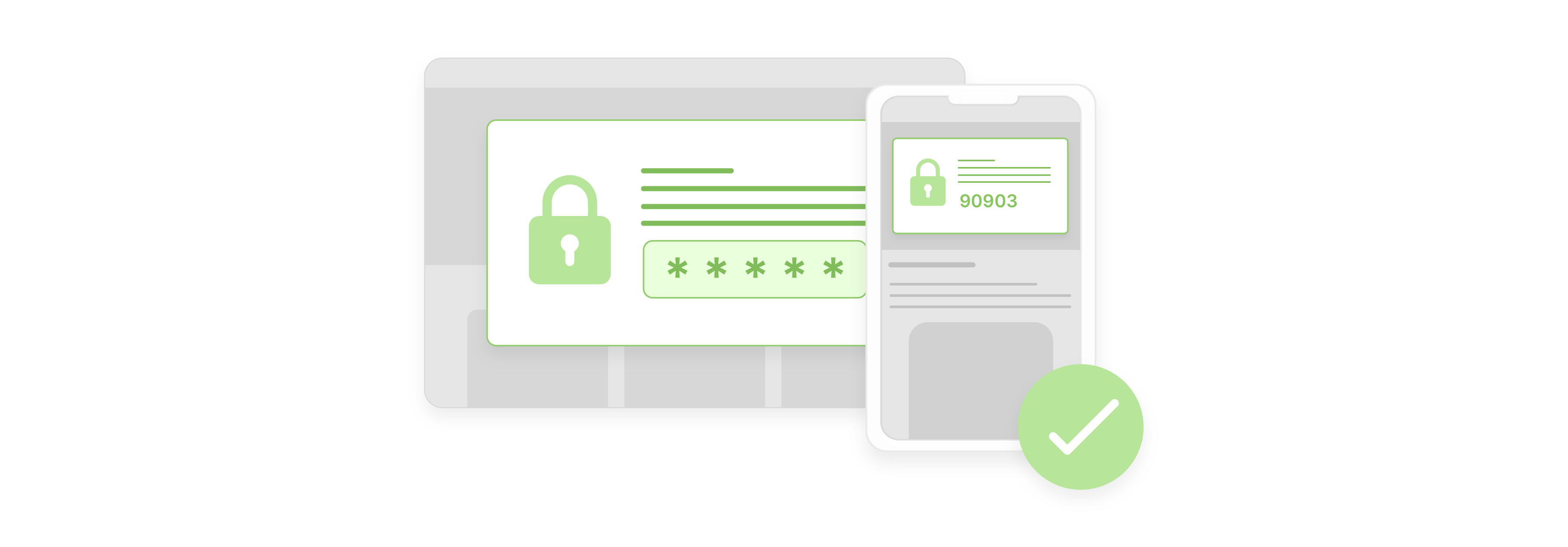
10 Tips to Choose a Secure Ecommerce Hosting Provider
Do you know that the global average cost of a data breach is USD 4.88 million? A secure eCommerce hosting provider protects your online store and customer data from costly breaches. It uses SSL certificates, firewalls, and DDoS protection to prevent attacks. This article covers the importance of secure hosting and 10 tips to choose the best provider.
Key Takeaways
-
What is Secure eCommerce Hosting?
-
Why Choose Secure, Sustainable eCommerce Hosting for Online Stores?
-
Top Tips for Choosing a Secure Host for Magento Ecommerce Store.
-
How Secure eCommerce Hosting Works.
-
Future Trends in Secure Magento eCommerce Hosting.
What is Secure Ecommerce Hosting?
Secure eCommerce hosting provides a safe environment for online stores. It protects customer data, including payment information and personal details.
Secure hosting uses several key security features:
-
Firewalls
These elements prevent cyber threats. It also follows industry standards like PCI DSS. It ensures secure payment processing. Healthcare merchants must also safeguard medical records, where a HIPAA-grade hosting environment offers the same rigorous oversight. The goal is to provide data safety and build a trustworthy shopping experience.
Businesses that choose secure hosting reduce the risk of data breaches. These services include:
-
24/7 monitoring to detect suspicious activities
-
Regular security updates to keep systems safe from vulnerabilities
-
Automatic backups to protect data
Secure eCommerce hosting aims to maintain reliable uptime and protect sensitive information.
Importance of Secure Ecommerce Hosting
1. Protects Sensitive Customer Data

Secure eCommerce hosting protects customer data like payment details and personal information. It uses SSL encryption to secure online transactions. It reduces the risk of data breaches. Secure hosting prevents unauthorized access. It helps build customer trust by keeping their data safe.
2. Complies with Industry Security Standards
Secure hosting follows industry regulations like PCI DSS. These rules ensure safe payment processing. Compliance prevents fines and legal issues. It protects your business from fraud and strengthens your store's credibility. You meet the required standards for handling customer payments.
3. Prevents Cyber Attacks

Cyber attacks, like DDoS and hacking, can damage your store. Secure eCommerce hosting uses firewalls and DDoS protection to block these threats. 24/7 monitoring detects problems early. It prevents downtime and lost sales. Secure hosting keeps your store running smoothly.
4. Increases Customer Confidence
Customers want a safe shopping experience. Secure hosting gives them confidence in your store. SSL certificates and security badges reassure them. It leads to more Magento sales and repeat business. A secure store improves your reputation and customer loyalty.
5. Reduces Liability
Secure hosting reduces your liability if a data breach occurs. It protects your business from legal action and financial penalties. Hosting providers manage many security tasks, which reduces your risk. It protects your store's reputation and finances. You stay prepared for potential threats.
6. Provides Regular Security Updates
Secure hosting regularly updates your store's security. These updates protect against new threats. They patch vulnerabilities that hackers might exploit. Your provider handles the updates automatically. It keeps your store safe without extra effort.
7. Offers Data Backup and Recovery

Secure hosting includes automatic backups to protect your data. If something goes wrong, you can quickly recover your store. It prevents data loss and keeps your business running. Backups add extra protection in case of an emergency. You can restore your store with minimal downtime.
10 Tips to Choose the Best Secure Ecommerce Web Hosting Service in 2024
| Tip | Explanation |
|---|---|
| Assess Your Business Needs | Understand your eCommerce model to choose the right hosting. Identify the features your store needs, such as: -Payment gateways -Customer management tools Decide if you need hosting for B2B or B2C. Estimate your traffic levels. Ensure the hosting meets your performance needs. Choose a host that scales your ecommerce website builder with your site needs. |
| Look for Robust Security Features | Choose hosting with strong security features. Look for: -SSL certificates -DDoS protection -Regular security audits. Multiple security layers are important to protect your store and data. |
| Evaluate Performance and Speed | Fast loading times are key for user experience. Choose a host with strong server performance. Consider providers offering Content Delivery Networks (CDNs). Fast sites improve conversion rates and customer satisfaction. Ensure the host can handle high traffic. |
| Check for Scalability Options | Your hosting should grow with your business. Look for flexible plans that offer upgrades in: - Storage -Bandwidth. Scalability ensures your store stays fast and responsive. Avoid hosting that limits your future growth. Choose a host that can meet your long-term needs. |
| Read Customer Reviews and Testimonials | Check customer reviews for authentic experiences. Look at independent platforms for honest feedback. Reviews show how the provider handles: -Performance -Support -Reliability Don’t trust testimonials on the host's website alone. Use third-party reviews for a complete picture. |
| Consider Customer Support Availability | 24/7 support is essential for eCommerce. Choose a host that offers: -Live chat -Phone -Email support Look for fast response times and helpful support during emergencies. Firm support helps resolve issues quickly and prevents downtime. Make sure the host has a good reputation for customer service. |
| Analyze Pricing Structures | Understand the pricing plans of each host. Some have fixed rates, while others charge based on usage. Watch out for hidden fees, such as: -Extra costs for SSL -Backups Choose a plan that fits your budget without sacrificing important features. Compare plans to find the best value. |
| Ensure Compliance with Regulations | Hosting must follow regulations such as: -GDPR -PCI DSS These regulations ensure data protection and secure payments. Non-compliance risks fines and hurts your reputation. Choose a host that meets these legal requirements. Keep your store safe and compliant. |
| Test the Hosting Environment | Use free trials or money-back guarantees to test the hosting. Check performance and security under real conditions. Testing helps you avoid long-term problems. Make sure the host meets your needs before committing. Try the service to prevent future headaches. |
| Look for Additional Features | Look for hosts that offer: -Backup solutions -eCommerce tools -Payment gateway integration Choose a host with features that streamline your business. Extra features can add value and make your operations easier. |
How Secure Ecommerce Hosting Works?
1. Isolation of Server Resources
Secure eCommerce hosting isolates your website’s resources from other users. It prevents resource sharing and keeps your site separate. Isolation ensures that your store operates independently. It reduces the risk of vulnerabilities from other websites on the same server. Dedicated resources also improve your store’s performance and security.
2. Managed Security Updates
The hosting provider manages all security updates automatically. It keeps your store’s software up to date with the latest security patches. You don’t need to worry about manually updating anything. Regular updates reduce the risk of attacks from outdated software. It ensures that your store stays protected at all times.
3. Traffic Monitoring

Secure hosting monitors website traffic continuously. It looks for unusual activities, like suspicious IP addresses or abnormal patterns. The provider identifies threats quickly and takes immediate action. This monitoring prevents attacks before they can harm your site. It ensures a safe shopping experience for your customers.
4. Multi-Factor Authentication

Secure hosting includes multi-factor authentication (MFA). It adds an extra layer of security to your site. Users must verify their identity in two steps, such as a password and a code sent to their device. MFA blocks unauthorized access to your hosting account or website dashboard. It strengthens overall store security.
5. Network Segmentation
Hosting providers use network segmentation to divide your website's infrastructure into sections. Segmentation isolates different parts of your system. If one area is compromised, the breach stays contained. Attackers can’t freely move through your entire network. It helps protect the rest of your store’s data and systems.
6. Application-Level Security
Secure hosting provides application-level security. It protects your Magento CMS, shopping cart, and other web applications. The hosting provider uses specific measures to prevent SQL injections and cross-site scripting (XSS). Application-level defenses are essential to maintaining a safe shopping environment for your customers.
Future Trends in Secure Ecommerce Hosting Providers
| Trend | Explanation |
|---|---|
| Increased Use of AI for Security | Hosting providers will implement AI to detect security threats faster. AI algorithms will analyze data in real time. It will help identify vulnerabilities before they are exploited. AI will also automate response actions to reduce damage. It will improve overall security for eCommerce stores. |
| Zero Trust Architecture | Providers will adopt zero-trust models for better security. They will require strict verification for every user and device. It ensures that no one is trusted by default. Unauthorized access will be blocked more effectively. Zero Trust will become standard in eCommerce hosting. |
| Edge Computing for Enhanced Security | Providers will expand edge computing for better security. Data will be processed closer to users, reducing latency. This method keeps data away from centralized servers. Edge computing helps prevent large-scale attacks. It will improve both performance and security. |
| Blockchain for Secure Transactions | Blockchain technology will be used more for secure transactions. Providers will use blockchain to verify and record payments transparently. It will reduce fraud and secure transactions. Blockchain will also eliminate intermediaries, improving efficiency. It will make transactions more trustworthy. |
| Serverless Architecture | Providers will offer more serverless hosting solutions. This model will improve scalability by adjusting resources automatically. It reduces the risk of security threats by minimizing server management. Serverless architecture gives flexibility and maintains a secure environment. It will grow in popularity for eCommerce. |
| Multi-Cloud Security Strategies | Providers will adopt multi-cloud strategies for better security. They will use multiple cloud platforms to distribute data and reduce risks. This approach helps prevent downtime if one provider has issues. Multi-cloud setups will increase resilience and keep data safer. Businesses will gain more control over data protection. |
| Automated Threat Detection and Response | Providers will use automation to detect and respond to cyber threats faster. Automated systems will monitor networks 24/7. It reduces response times and prevents further damage. Automation will streamline security processes. Businesses will benefit from faster risk mitigation and better protection. |
| Advanced Encryption Methods | Hosting providers will adopt advanced encryption methods. These will offer stronger protection against new threats. Providers will focus on quantum-resistant encryption to stay ahead. It will secure customer data and payments more effectively. More robust encryption will become a standard feature. |
| Data Sovereignty and Compliance Focus | Providers will prioritize data sovereignty to meet local regulations. They will comply with international standards like GDPR and CCPA. Compliance will become essential as regulations evolve. Providers will tailor services to fit specific legal requirements. Businesses will choose providers that help maintain compliance. |
| Sustainability in Secure Hosting | Hosting providers will adopt sustainable practices in their operations. They will use energy-efficient solutions for data centers. Providers will also reduce carbon footprints while maintaining security. Sustainability will become a critical factor in hosting choices. Green hosting will balance security and environmental responsibility. |
MGT-Commerce Secure Ecommerce Hosting Features
| Feature | Explanation |
|---|---|
| Web Application Firewall (WAF) | The MGT WAF protects your Magento store from web threats. It blocks known exploits before they reach your site. The firewall monitors incoming traffic and filters it. It prevents security issues from being missed during development. It adds a key layer of protection. |
| DDoS Mitigation | AWS Shield defends against DDoS attacks. It reduces downtime by blocking large traffic floods. The service keeps your site available during attacks. It helps maintain performance and user experience. AWS Shield handles unexpected surges smoothly. |
| Hourly Backups | MGT Commerce performs hourly backups of your data. These backups capture a point-in-time copy of your site. You can quickly restore lost data if needed. The system ensures disaster recovery. It helps your store stay operational during failures. |
| SSL Encryption | SSL certificates move your site from HTTP to HTTPS. They secure data exchanged between your site and users. It prevents unauthorized access and attacks. SSL also verifies your site's authenticity. It builds trust with your customers. |
| PCI and GDPR Compliance | MGT Commerce complies with PCI DSS and GDPR standards. It protects payment data and ensures customer privacy. Compliance helps you avoid legal issues. It also shows customers that their data is secure. |
| ISO 27001 Certification | ISO 27001 certification proves MGT Commerce meets international security standards. It shows their commitment to protecting data. The certification assures that best practices are followed. It builds trust with your customers. |
| Port Security with VPN | MGT Commerce secures unused ports with VPN access. It blocks unauthorized access and increases privacy. VPNs create an encrypted connection. They limit external access to your infrastructure. It adds an extra layer of security. |
| Auto Scaling | Auto Scaling adjusts your hosting resources during traffic spikes. It ensures your site stays fast and responsive. This system prevents downtime during high-traffic periods. Auto Scaling helps handle surges without manual effort. |
| Encrypted File System | MGT Commerce encrypts all data stored on your file system. It makes files unreadable without the encryption key. Even if attackers access the data, they can't interpret it. This measure protects your sensitive data. |
| Disaster Recovery by Snapshots | Snapshots allow full recovery if something goes wrong. They create a point-in-time copy of your system. You can restore your site to a previous state quickly. It ensures business continuity. It helps you recover soon from crashes. |
FAQs
1. What type of hosting is best for my e-commerce business?
The best ecommerce hosting solution depends on your hosting needs. For a small business, a shared hosting plan might work, but larger stores need VPS hosting options or dedicated hosting. Choose a web hosting provider that offers scalable plans. Look for ecommerce features like a free SSL certificate.
2. Does the best e-commerce hosting provider offer free SSL certificates?
Yes, the best ecommerce hosting provider typically includes a free SSL certificate. It secures your ecommerce site and builds customer trust. Most ecommerce hosting solutions offer this feature as part of their hosting platform. A free SSL certificate helps protect data and payment transactions.
3. Can I host an online store with WordPress hosting?
You can host an online store using WordPress hosting and WooCommerce hosting. This option is ideal for integrating with ecommerce platforms like WooCommerce. Many managed Magento hosting offers include ecommerce features tailored for e-commerce websites. WordPress hosting is flexible for small businesses and growing stores.
4. What is the difference between cloud hosting and VPS hosting options?
Cloud hosting distributes your e-commerce website across multiple servers, enhancing performance and uptime. VPS hosting options offer dedicated resources on a single web server, giving more control and power. Both are great for an ecommerce business. Choose based on your ecommerce plans and traffic needs.
5. Can I get a free domain for the first year with ecommerce hosting?
Many of the best e-commerce hosting plans include a free domain for the first year. This offer is common with ecommerce hosting solutions from top providers. It helps you set up your e-commerce web host quickly. Choose a provider that offers this incentive to save costs when starting your online business.
6. What hosting platform is best for a small e-commerce business?
For a small e-commerce business, a website hosting plan with cloud hosting or managed hosting offers is ideal. The best web hosting for small stores provides easy scalability and ecommerce features. Look for the best hosting platform that supports your ecommerce site and growth.
7. Should I choose dedicated hosting for my ecommerce site?
If your ecommerce site has high traffic, dedicated hosting is the best choice. It offers more control and reliability than a shared hosting plan. The best ecommerce web hosts offer dedicated hosting to handle larger stores. It’s ideal for serious ecommerce businesses looking for performance and security.
Summary
A secure eCommerce hosting provider is essential to protect your business and customers. It reduces liability, enhances customer trust, and helps with compliance. Key benefits are:
-
Data Security: Protects customer information from breaches.
-
Compliance: Meets industry standards like PCI DSS and GDPR.
-
Customer Trust: Builds a stronger reputation with secure hosting.
-
Scalability: Grows with your business needs.
-
Support: Provides 24/7 assistance for peace of mind.
Consider managed Magento hosting to ensure secure web hosting for ecommerce stores.



